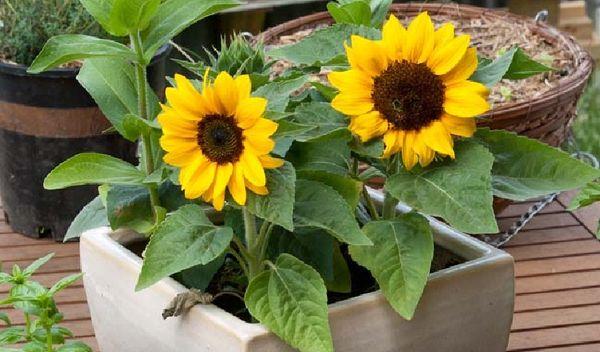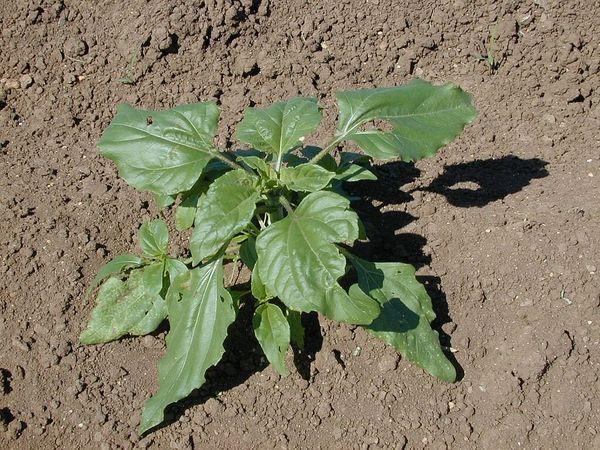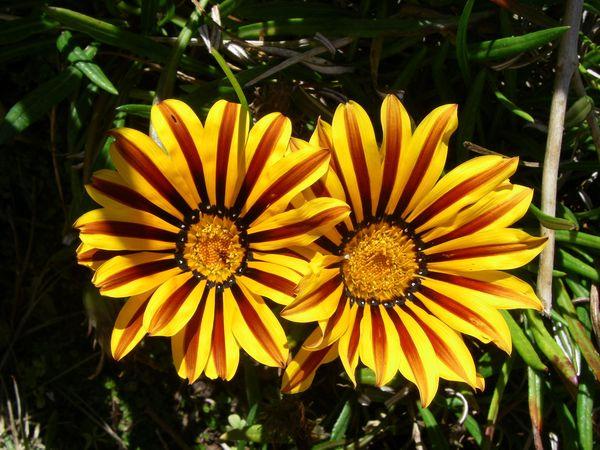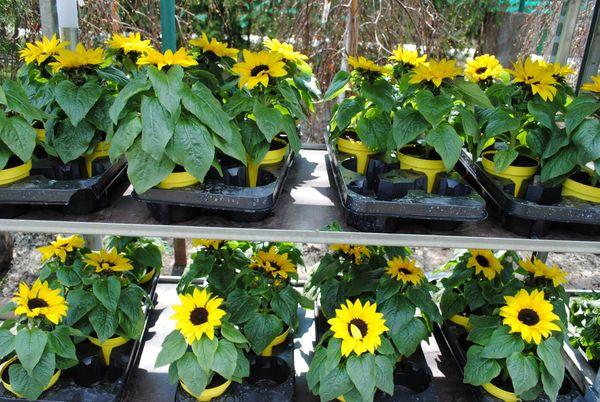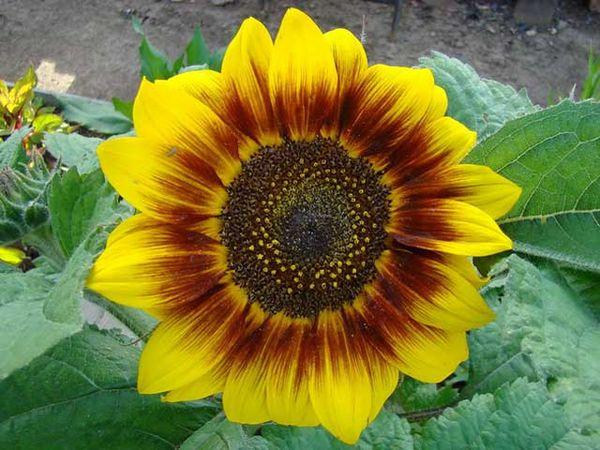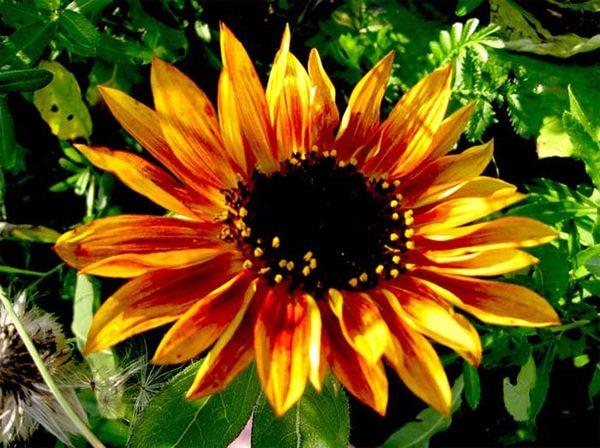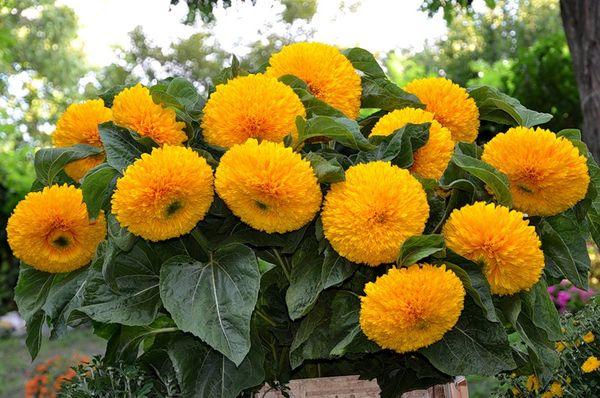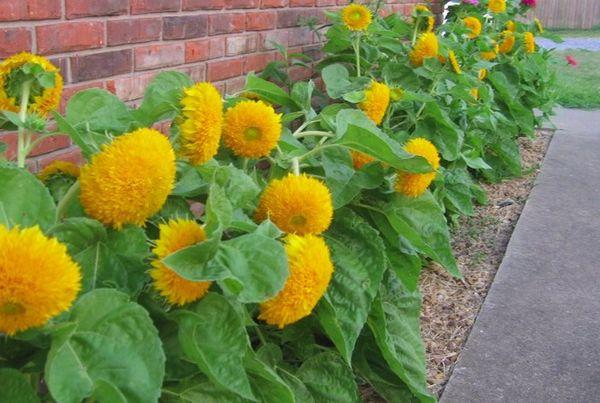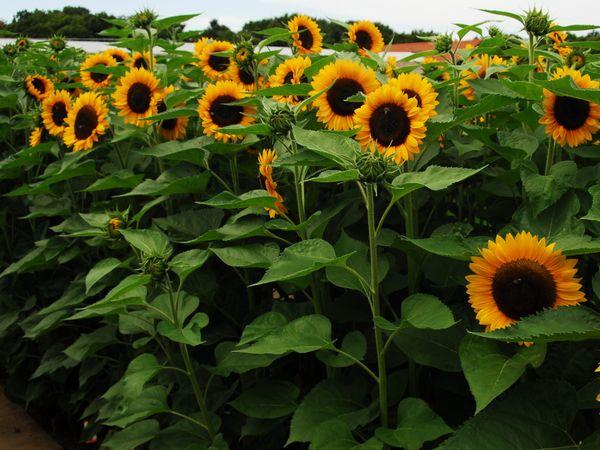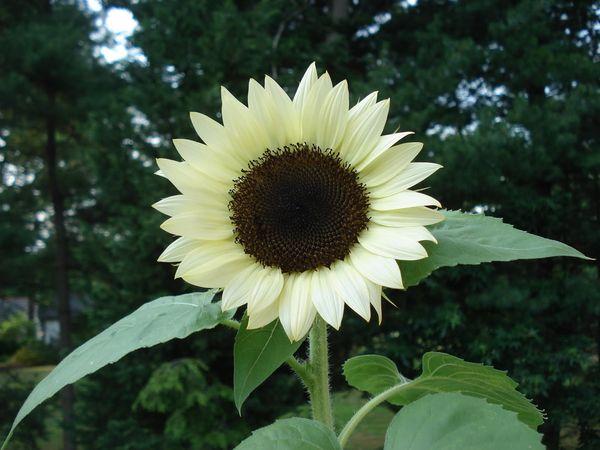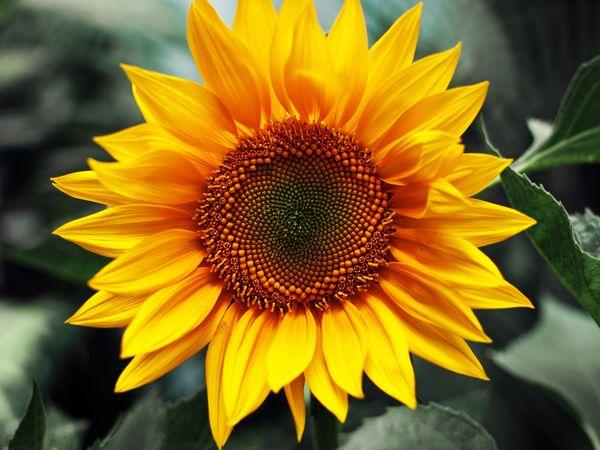The colorful decorative sunflower is a close relative of the well-known oilseed sunflower. Both plants belong to the same species, and both are actively used in garden design.
- Decorative sunflower, planting and care
- Description and features
- Origin
- Growing seedlings
- Sowing dates
- Soil requirement
- Landing dates
- Planting scheme
- Care
- Watering
- Loosening and weeding
- Top dressing
- Pests and diseases
- Sunflower moth
- Sunflower longhorned beetle
- Sunflower spikelet
- Trimming faded inflorescences
- Kinds
- tuberous
- Ten-petalled
- Popular varieties
- Vanilla ice
- Teddy bear
- Red Sun
- Moulin Rouge
- Kong
- Procut Red Lemon Bicolor
- Moonlight
- Giant Single
- Italian White
- Cherry Rose
- Florenza
- Black Magic F1
- Use in garden design
- Flowerbeds
- Decoration of fences, compost heaps, buildings
- Bouquet, cut
Decorative sunflower, planting and care
which will be described below, represents more than 100 varieties with special features. All varieties differ in size and color, as well as in the nuances of cultivation.
Description and features
Sunflower belongs to the Aster family and unites various species, most of which are decorative. Plants differ from each other, but also contain common characteristics:
- tall straight stems from 0.6 to 3 m;
- hard large leaves;
- inflorescences in the form of baskets with several rows of encircling petals;
- the fruits are represented by compressed achenes.
Decorative sunflowers include both annual and perennial varieties. The differences are in the height of the plants and the color of the petals, which can have different shades:
- white;
- cream;
- yellow;
- orange;
- red;
- burgundy;
- brown.
Origin
The plant is native to the South American continent. It is believed that the first sunflowers appeared in Europe after Columbus returned from Mexico. The appearance of the flower influenced the appearance of its name - helianthus, which can be translated as sunny flower. Sunflowers appeared in Russia at the beginning of the 18th century. first as a decoration for gardens, and later as an agricultural crop.
Growing seedlings
Sunflowers can be sown directly in open ground, but it is preferable to use the seedling growing method. It is advisable to purchase seeds in stores and nurseries, although you can collect them yourself, but this method does not guarantee the preservation of the original characteristics of the plant.
Sowing dates
Sowing time directly depends on the timing of planting seedlings in open ground.For sustainable development in a permanent place, the age of the plants should be 3-3.5 weeks. On average, seeds are planted from late April to early May, but varietal requirements may shift this period.
Soil requirement
The soil for growing decorative sunflowers needs to be loose and very light. Sandy loam soils are the best option. The ground must be prepared for planting at least 24 hours in advance. The area should be dug up, dense clay soil or loam should be diluted with sand.
High decorative indicators are associated with moderate soil moisture and nutritional value. And the presence of increased acidity and salinity has a negative impact on the appearance of sunflowers.
Landing dates
Ornamental sunflower varieties are not particularly resistant to frost, so it is recommended to plant seedlings after warm weather has settled. Typically, plants are planted starting in the second half of May. When grown without seedlings in the southern regions, the seeds are sown at the end of March or beginning of April, and starting from the middle latitudes and further north, the date shifts to the end of May.
Sowing sunflower seeds in open ground can be done not only in spring, but also in autumn. However, in this case, seedlings appear in spring only in warm climates with mild, snowy winters.
Planting scheme
The distance between individual seedlings depends on the variety of sunflower. Low-growing plants are located no closer than 0.3 m from each other. Tall plants need even more space, and it is optimal to distance the specimens by 0.7 m. No more than 3 shoots can be placed in each hole, but dense planting leads to a reduction in the size of the flowers.
Care
Sunflowers do not have high care requirements.The most important condition is an abundance of sunlight; plants should not be placed even in partial shade. Strong stems are not afraid of winds, but low-growing varieties are best planted in protected places.
Watering
Flowers need abundant regular watering. Both the soil should not dry out and moisture should not stagnate at the roots. Plants are watered weekly, and in hot weather - daily. Sunflowers especially need water during the period of leaf formation, as well as during the appearance of buds and during flowering.
Loosening and weeding
The soil must be loosened after each watering, as well as after rain. This stimulates the plant's vegetation and saturates the roots with moisture and oxygen. At the same time, weeds are removed, which takes away nutrition from the sunflower and shades the seedlings.
Top dressing
The decorative qualities of sunflowers are enhanced by the presence of nutrients in the soil. A month after the appearance of the first shoots, the plants can be fed with nitrogen fertilizers; during flowering, complex mineral fertilizers or phosphorus-potassium mixtures can be used.
Pests and diseases
Ornamental sunflowers can be affected by insects and bacterial diseases. Dangerous infections:
- Downy mildew. Pests and high humidity stimulate the development of the disease, which causes a white coating to appear at the bottom of the leaf. Diseased parts of the plant need to be cut off, and the plantings should be treated with fungicides or a soap solution with the addition of copper sulfate.
- Brown spot. The disease causes dark, drying spots to appear on leaves under conditions of high temperature and humidity. For treatment, the drugs “Vectra” or “Strobe” are used.
- Rust.The fungus forms orange pustules filled with spores; you can get rid of the disease with the help of fungicides.
Sunflower moth
Caterpillars of sunflower moths or moths infect plant leaves. You can get rid of insects with the help of insecticides, but there is no prevention against these pests, other than weeding.
Sunflower longhorned beetle
These beetles lay eggs in the stems of the sunflower, and the larvae destroy its structure. Proper care and removal of weeds will protect the plantings, and chemicals will destroy insects.
Sunflower spikelet
The pest lays eggs in the axils of the leaves, and the larvae quickly penetrate inside the stem. A good preventive measure against thorn weed is deep digging of the soil and removal of dry shoots. Plants can be treated with Vantex, Fufanon or similar agents.
Trimming faded inflorescences
Sunflowers do not always bloom at the same time; to reappear, it is recommended to cut off the previous ones immediately after losing their attractiveness. This procedure will stimulate the plant to re-develop flowers. In autumn, shoots of perennial varieties are cut off completely.
Kinds
The sunflower genus includes at least 50 species of plants with decorative characteristics. The most common:
- annual or oilseed;
- tuberous or Jerusalem artichoke;
- ten-petalled;
- Maximilian;
- holly;
- redstem;
- brightly flowered.
tuberous
The main difference between this species is the formation of tubers in the underground part of the plant. External characteristics:
- shoot height up to 3 m;
- the stem is sparsely covered with leaves;
- small baskets from 2 to 6 cm;
- petals are golden yellow.
Ten-petalled
A common decorative look is characterized by:
- plant height 1.5 m;
- dark green leaves;
- flowering from the second half of August to late autumn;
- simple or double inflorescences;
- petals are golden or lemon yellow.
Popular varieties
There are a huge number of varieties of decorative sunflowers, as well as hybrids. Plants vary according to size, climatic requirements and external characteristics.
All varieties, both pure and hybrids, have a subtle, pleasant aroma, attract bees and are honey bearers.
Vanilla ice
Variety characteristics:
- used for bouquets;
- simple basket shape;
- vanilla color of petals.
Teddy bear
External data of the plant:
- shoots up to 1 m;
- double flowers about 22 cm in diameter;
- bright yellow petals;
- long flowering.
Red Sun
Characteristics of a sunflower:
- height no more than 2 m;
- long flowering;
- red-brown color of the petals.
Moulin Rouge
The flowers of this variety are different:
- the center of the petals is burgundy-red;
- the edge is light;
- the core is dark.
Kong
Varietal features:
- height about 5 m;
- shoots are prone to breaking in the wind;
- use as a hedge.
Procut Red Lemon Bicolor
The appearance of flowers of this variety is characterized by:
- black core;
- the petals are red inside;
- the edge of the flower turns yellow.
Moonlight
Features of the variety:
- height up to 1 m;
- inflorescences are simple;
- petals are lemon yellow.
Giant Single
Special features of these sunflowers:
- height 2 m;
- large baskets;
- simple form of inflorescences;
- petals are golden.
Italian White
External differences of the variety:
- light, almost white petals;
- dark center;
- simple basket shape;
- high growth.
Cherry Rose
The foreign variety is characterized by:
- rapid growth rates;
- center almost black;
- the middle of the petals is red-cherry;
- edges light yellow;
- there is no pollen.
Florenza
Features of these sunflowers:
- used in bouquets;
- the central half of the petals is burgundy;
- the edges of the flowers are yellow.
Black Magic F1
Hybrid characteristics:
- shoot height 1.2 m;
- rich dark burgundy color of the baskets;
- use in bouquets.
Use in garden design
In the decoration of garden plots, both single plantings of decorative sunflowers and combinations with other flowers are widely used. The plant decorates flower beds and hedges, creates a bright accent and creates a rustic interior.
Flowerbeds
When forming a joint flower bed, it is worth planting yellow sunflowers in combination with blue, purple or white flowers. Large inflorescences harmonize well with chrysanthemums, lavender, small wildflowers, white liatris and delphiniums.
Decoration of fences, compost heaps, buildings
Low-growing sunflowers can be planted along the edges of garden paths and on the border of hedges. High varieties look good against the background of blank walls of buildings. Lush plants can hide unattractive compost heaps from view. Sunflowers also make a good backdrop for rustic garden arrangements.
Bouquet, cut
Not too large bright baskets of sunflowers are used by florists to create original bouquets. The inflorescences create good harmony with roses, gladioli, asters and chrysanthemums. Sunflowers remain fresh for a long time and do not overwhelm other flowers.

